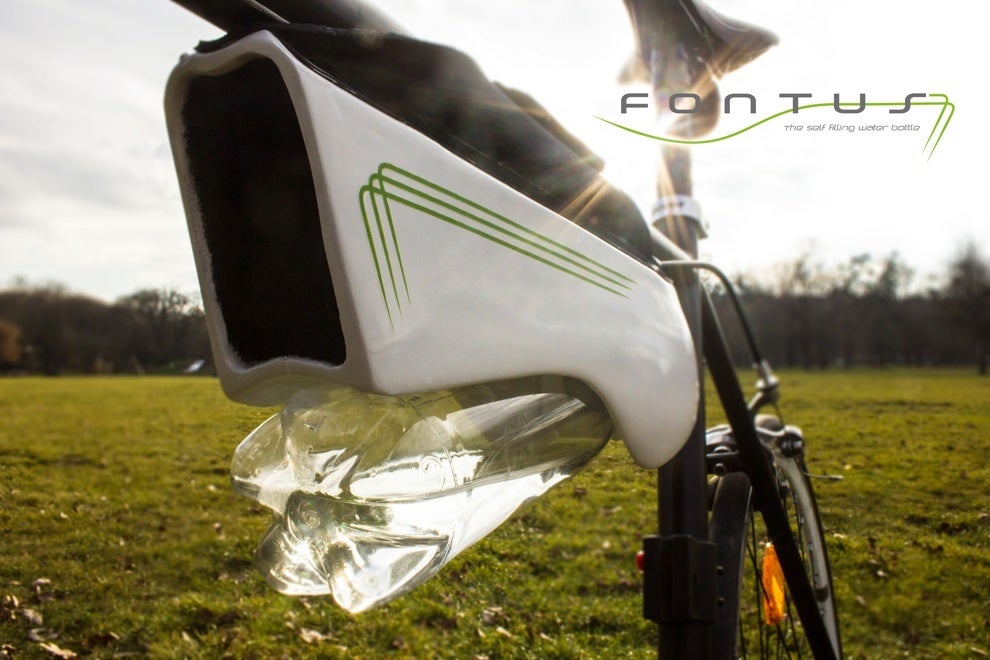This self-filling water bottle condenses half a litre of drinking water from an hour's cycling
It's powered by solar cells and thermoelectric cooling - though it's just a prototype at this point in time

A self-filling bottle that hangs underneath a bike frame and condenses water directly out of the air could be a blessing for long-distance cyclists and inhabitants of water-scarce regions.
The prototype gadget called the Fontus is the creation of Austrian designer Kristof Retezár, who claims that in correct conditions (aka hot and humid) it can produce half a litre of drinkable water in an hour’s time.
“Fontus can be applied in two different areas,” says Retezár. “Firstly, it may be interpreted as a sporty bicycle accessory [that’s] useful on long bike tours. Secondly, it might be a clever way of acquiring freshwater in regions of the world where groundwater is scarce but humidity is high.”
The mechanism at the heart of the gadget is the ‘Peltier effect’, otherwise known as thermoelectric cooling. This process takes advantage of the heat transfer that happens when electricity is flowing through a conductor to push warmth from one side of a slatted block of metal (a heat sink) to another.
The components of the Fontus. Click here for a bigger image.
Solar cells on the top of the Fontus power a Peliter device which in turn cools a chamber sucking in fresh air as the bike moves forward. The air in this chamber is slowed and cooled and eventually – voila – water drips into a waiting bottle.
Unfortunately, while the science behind Fontus is sound the efficiency of the process means it's not entirely practical. Retezár’s rough estimate of one hour to produce half a litre of drinking water requires temperatures of at least 40 degrees Centigrade and humidity of greater than 60 per cent.
In these conditions, anyone out for even a relatively gentle cycle is going to lose at least double the volume of liquid they produce through sweat. And this is before taking into account the problem of air pollution – something that Retezár doesn't mention that means the Fontus probably wouldn’t be much use in cities.
Still, if the hardware itself isn’t too expensive to produce then the Fotus is essentially creating drinkable water out of fresh air and sunshine at no cost. That’s too amazing not to try and make it work. Luckily, the Fotus is up for a Dyson award and could win $45,000 for futher development. Fingers crossed.
Subscribe to Independent Premium to bookmark this article
Want to bookmark your favourite articles and stories to read or reference later? Start your Independent Premium subscription today.

Join our commenting forum
Join thought-provoking conversations, follow other Independent readers and see their replies